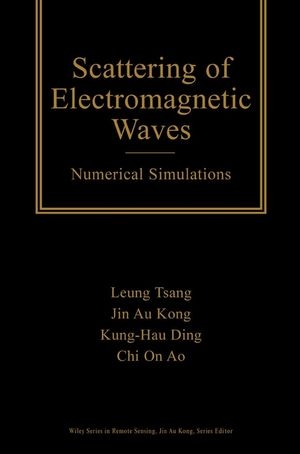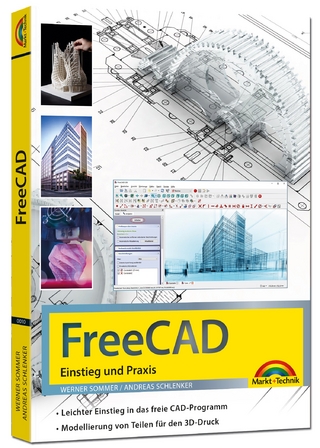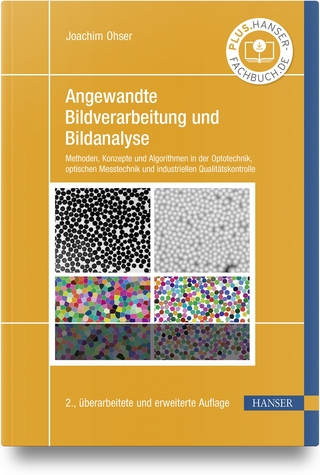
Scattering of Electromagnetic Waves
Wiley-Interscience (Verlag)
978-0-471-38800-5 (ISBN)
A timely and authoritative guide to the state of the art of wave scattering
Scattering of Electromagnetic Waves offers in three volumes a complete and up-to-date treatment of wave scattering by random discrete scatterers and rough surfaces. Written by leading scientists who have made important contributions to wave scattering over three decades, this new work explains the principles, methods, and applications of this rapidly expanding, interdisciplinary field. It covers both introductory and advanced material and provides students and researchers in remote sensing as well as imaging, optics, and electromagnetic theory with a one-stop reference to a wealth of current research results. Plus, Scattering of Electromagnetic Waves contains detailed discussions of both analytical and numerical methods, including cutting-edge techniques for the recovery of earth/land parametric information.
The three volumes are entitled respectively Theories and Applications, Numerical Simulation, and Advanced Topics. In the second volume, Numerical Simulations, Leung Tsang (University of Washington) Jin Au Kong (MIT), Kung-Hau Ding (Air Force Research Lab), and Chi On Ao (MIT) cover:
* Layered media simulations
* Rough surface and volume scattering simulations
* Dense media models and simulations
* Electromagnetic scattering by discrete scatterers and a buried object
* Scattering by vertical cylinders above a surface
* Electromagnetic waves scattering by vegetation
* Computational methods and programs used for performing various simulations
Leung Tsang is the author of Scattering of Electromagnetic Waves: Numerical Simulations, published by Wiley. Jin Au Kong was an American expert in applied electromagnetics. He was a 74th-generation lineal descendent of the famous Chinese philosopher Confucius.
PREFACE xix
CHAPTER 1 MONTE CARLO SIMULATIONS OF LAYERED MEDIA 1
1 One-Dimensional Layered Media with Permittivity Fluctuations 2
1.1 Continuous Random Medium 2
1.2 Generation of One-Dimensional Continuous Gaussian Random Medium 4
1.3 Numerical Results and Applications to Antarctica 5
2 Random Discrete Layering and Applications 8
References and Additional Readings 12
CHAPTER 2 INTEGRAL EQUATION FORMULATIONS AND BASIC NUMERICAL METHODS 13
1 Integral Equation Formulation for Scattering Problems 14
1.1 Surface Integral Equations 14
1.2 Volume Integral Equations 17
1.3 Dyadic Green's Function Singularity and Electrostatics 19
2 Method of Moments 23
3 Discrete Dipole Approximation (DDA) 27
3.1 Small Cubes 28
3.2 Radiative Corrections 29
3.3 Other Shapes 31
4 Product of Toeplitz Matrix and Column Vector 37
4.1 Discrete Fourier Transform and Convolutions 38
4.2 FFT for Product of Toeplitz Matrix and Column Vector 42
5 Conjugate Gradient Method 46
5.1 Steepest Descent Method 46
5.2 Real Symmetric Positive Definite Matrix 48
5.3 General Real Matrix and Complex Matrix 52
References and Additional Readings 57
CHAPTER 3 SCATTERING AND EMISSION BY A PERIODIC ROUGH SURFACE 61
1 Dirichlet Boundary Conditions 62
1.1 Surface Integral Equation 62
1.2 Floquet's Theorem and Bloch Condition 63
1.3 2-D Green's Function in 1-D Lattice 64
1.4 Bistatic Scattering Coefficients 67
2 Dielectric Periodic Surface: T-Matrix Method 68
2.1 Formulation in Longitudinal Field Components 69
2.2 Surface Field Integral Equations and Coupled Matrix Equations 74
2.3 Emissivity and Comparison with Experiments 81
3 Scattering of Waves Obliquely Incident on Periodic Rough Surfaces: Integral Equation Approach 85
3.1 Formulation 85
3.2 Polarimetric Brightness Temperatures 89
4 Ewald's Method 93
4.1 Preliminaries 93
4.2 3-D Green's Function in 3-D Lattices 98
4.3 3-D Green's Function in 2-D Lattices 102
4.4 Numerical Results 105
References and Additional Readings 110
CHAPTER 4 RANDOM ROUGH SURFACE SIMULATIONS 111
1 Perfect Electric Conductor (Non-Penetrable Surface) 114
1.1 Integral Equation 114
1.2 Matrix Equation: Dirichlet Boundary Condition (EFIE for TE Case) 116
1.3 Tapering of Incident Waves and Calculation of Scattered Waves 118
1.4 Random Rough Surface Generation 124
1.4.1 Gaussian Rough Surface 124
1.4.2 Fractal Rough Surface 132
1.5 Neumann Boundary Condition (MFIE for TM Case) 134
2 Two-Media Problem 137
2.1 TE and TM Waves 139
2.2 Absorptivity, Emissivity and Reflectivity 141
2.3 Impedance Matrix Elements: Numerical Integrations 143
2.4 Simulation Results 145
2.4.1 Gaussian Surface and Comparisons with Analytical Methods 145
2.4.2 Dirichlet Case of Gaussian Surface with Ocean Spectrum and Fractal Surface 150
2.4.3 Bistatic Scattering for Two Media Problem with Ocean Spectrum 151
3 Topics of Numerical Simulations 154
3.1 Periodic Boundary Condition 154
3.2 MFIE for TE Case of PEC 158
3.3 Impedance Boundary Condition 161
4 Microwave Emission of Rough Ocean Surfaces 163
5 Waves Scattering from Real-Life Rough Surface Profiles 166
5.1 Introduction 166
5.2 Rough Surface Generated by Three Methods 167
5.3 Numerical Results of the Three Methods 169
References and Additional Readings 175
CHAPTER 5 FAST COMPUTATIONAL METHODS FOR SOLVING ROUGH SURFACE SCATTERING PROBLEMS 177
1 Banded Matrix Canonical Grid Method for Two-Dimensional Scattering for PEC Case 179
1.1 Introduction 179
1.2 Formulation and Computational Procedure 180
1.3 Product of a Weak Matrix and a Surface Unknown Column Vector 187
1.4 Convergence and Neighborhood Distance 188
1.5 Results of Composite Surfaces and Grazing Angle Problems 189
2 Physics-Based Two-Grid Method for Lossy Dielectric Surfaces 196
2.1 Introduction 196
2.2 Formulation and Single-Grid Implementation 198
2.3 Physics-Based Two-Grid Method Combined with Banded Matrix Iterative Approach/Canonical Grid Method 200
2.4 Bistatic Scattering Coefficient and Emissivity 203
3 Steepest Descent Fast Multipole Method 212
3.1 Steepest Descent Path for Green's Function 213
3.2 Multi-Level Impedance Matrix Decomposition and Grouping 216
3.3 Multi-Level Discretization of Angles and Interpolation 222
3.4 Steepest Descent Expression of Multi-Level Impedance Matrix Elements 226
3.5 SDFMM Algorithm 235
3.6 Numerical Results 242
4 Method of Ordered Multiple Interactions (MOMI) 242
4.1 Matrix Equations Based on MFIE for TE and TM Waves for PEC 242
4.2 Iterative Approach 245
4.3 Numerical Results 247
5 Physics-Based Two-Grid Method Combined with the Multilevel Fast Multipole Method 249
5.1 Single Grid and PBTG 249
5.2 Computational Complexity of the Combined Algorithm of the PBTG with the MLFMM 252
5.3 Gaussian Rough Surfaces and CPU Comparison 254
5.4 Non-Gaussian Surfaces 257
References and Additional Readings 263
CHAPTER 6 THREE-DIMENSIONAL WAVE SCATTERING FROM TWO-DIMENSIONAL ROUGH SURFACES 267
1 Scattering by Non-Penetrable Media 270
1.1 Scalar Wave Scattering 270
1.1.1 Formulation and Numerical Method 270
1.1.2 Results and Discussion 273
1.1.3 Convergence of SMFSIA 277
1.2 Electromagnetic Wave Scattering by Perfectly Conducting Surfaces 278
1.2.1 Surface Integral Equation 278
1.2.2 Surface Integral Equation for Rough Surface Scattering 280
1.2.3 Computation Methods 281
1.2.4 Numerical Simulation Results 286
2 Integral Equations for Dielectric Surfaces 293
2.1 Electromagnetic Fields with Electric and Magnetic Sources 293
2.2 Physical Problem and Equivalent Exterior and Interior Problems 296
2.2.1 Equivalent Exterior Problem, Equivalent Currents and Integral Equations 296
2.2.2 Equivalent Interior Problem, Equivalent Currents and Integral Equations 298
2.3 Surface Integral Equations for Equivalent Surface Currents, Tangential and Normal Components of Fields 300
3 Two-Dimensional Rough Dielectric Surfaces with Sparse Matrix Canonical Grid Method 304
3.1 Integral Equation and SMCG Method 304
3.2 Numerical Results of Bistatic Scattering Coefficient 318
4 Scattering by Lossy Dielectric Surfaces with PBTG Method 326
4.1 Introduction 326
4.2 Formulation and Single Grid Implementation 328
4.3 Physics-Based Two-Grid Method 329
4.4 Numerical Results and Comparison with Second Order Perturbation Method 334
4.5 Numerical Simulations of Emissivity of Soils with Rough Surfaces at Microwave Frequencies 343
5 Four Stokes Parameters Based on Tangential Surface Fields 350
6 Parallel Implementation of SMCG on Low Cost Beowulf System 354
6.1 Introduction 354
6.2 Low-Cost Beowulf Cluster 355
6.3 Parallel Implementation of the SMCG Method and the PBTG Method 356
6.4 Numerical Results 360
References and Additional Readings 366
CHAPTER 7 VOLUME SCATTERING SIMULATIONS 371
1 Combining Simulations of Collective Volume Scattering Effects with Radiative Transfer Theory 373
2 Foldy-Lax Self-Consistent Multiple Scattering Equations 376
2.1 Final Exciting Field and Multiple Scattering Equation 376
2.2 Foldy-Lax Equations for Point Scatterers 379
2.3 The JV-Particle Scattering Amplitude 382
3 Analytical Solutions of Point Scatterers 382
3.1 Phase Function and Extinction Coefficient for Uniformly Distributed Point Scatterers 382
3.2 Scattering by Collection of Clusters 389
4 Monte Carlo Simulation Results of Point Scatterers 392
References and Additional Readings 401
CHAPTER 8 PARTICLE POSITIONS FOR DENSE MEDIA CHARACTERIZATIONS AND SIMULATIONS 403
1 Pair Distribution Functions and Structure Factors 404
1.1 Introduction 404
1.2 Percus Yevick Equation and Pair Distribution Function for Hard Spheres 406
1.3 Calculation of Structure Factor and Pair Distribution Function 409
2 Percus—Yevick Pair Distribution Functions for Multiple Sizes 411
3 Monte Carlo Simulations of Particle Positions 414
3.1 Metropolis Monte Carlo Technique 415
3.2 Sequential Addition Method 418
3.3 Numerical Results 418
4 Sticky Particles 424
4.1 Percus-Yevick Pair Distribution Function for Sticky Spheres 424
4.2 Pair Distribution Function of Adhesive Sphere Mixture 429
4.3 Monte Carlo Simulation of Adhesive Spheres 434
5 Particle Placement Algorithm for Spheroids 444
5.1 Contact Functions of Two Ellipsoids 445
5.2 Illustrations of Contact Functions 446
References and Additional Readings 450
CHAPTER 9 SIMULATIONS OF TWO-DIMENSIONAL DENSE MEDIA 453
1 Introduction 454
1.1 Extinction as a Function of Concentration 454
1.2 Extinction as a Function of Frequency 456
2 Random Positions of Cylinders 458
2.1 Monte Carlo Simulations of Positions of Hard Cylinders 458
2.2 Simulations of Pair Distribution Functions 460
2.3 Percus-Yevick Approximation of Pair Distribution Functions 461
2.4 Results of Simulations 463
2.5 Monte Carlo Simulations of Sticky Disks 463
3 Monte Carlo Simulations of Scattering by Cylinders 469
3.1 Scattering by a Single Cylinder 469
3.2 Foldy-Lax Multiple Scattering Equations for Cylinders 476
3.3 Coherent Field, Incoherent Field, and Scattering Coefficient 480
3.4 Scattered Field and Internal Field Formulations 481
3.5 Low Frequency Formulas 482
3.6 Independent Scattering 484
3.7 Simulation Results for Sticky and Non-Sticky Cylinders 485
4 Sparse-Matrix Canonical-Grid Method for Scattering by Many Cylinders 486
4.1 Introduction 486
4.2 The Two-Dimensional Scattering Problem of Many Dielectric Cylinders 489
4.3 Numerical Results of Scattering and CPU Comparisons 490
References and Additional Readings 493
CHAPTER 10 DENSE MEDIA MODELS AND THREE-DIMENSIONAL SIMULATIONS 495
1 Introduction 496
2 Simple Analytical Models For Scattering From a Dense Medium 496
2.1 Effective Permittivity 496
2.2 Scattering Attenuation and Coherent Propagation Constant 500
2.3 Coherent Reflection and Incoherent Scattering From a Half-Space of Scatterers 505
2.4 A Simple Dense Media Radiative Transfer Theory 510
3 Simulations Using Volume Integral Equations 512
3.1 Volume Integral Equation 512
3.2 Simulation of Densely Packed Dielectric Spheres 514
3.3 Densely Packed Spheroids 518
4 Numerical Simulations Using T-Matrix Formalism 533
4.1 Multiple Scattering Equations 533
4.2 Computational Considerations 541
4.3 Results and Comparisons with Analytic Theory 545
4.4 Simulation of Absorption Coefficient 547
References and Additional Readings 548
CHAPTER 11 ANGULAR CORRELATION FUNCTION AND DETECTION OF BURIED OBJECT 551
1 Introduction 552
2 Two-Dimensional Simulations of Angular Memory Effect and Detection of Buried Object 553
2.1 Introduction 553
2.2 Simple and General Derivation of Memory Effect 553
2.3 ACF of Random Rough Surfaces with Different Averaging Methods 555
2.4 Scattering by a Buried Object Under a Rough Surface 557
3 Angular Correlation Function of Scattering by a Buried Object Under a 2-D Random Rough Surface (3-D Scattering) 564
3.1 Introduction 564
3.2 Formulation of Integral Equations 565
3.3 Statistics of Scattered Fields 570
3.4 Numerical Illustrations of ACF and PACF 571
4 Angular Correlation Function Applied to Correlation Imaging in Target Detection 575
4.1 Introduction 575
4.2 Formulation of Imaging 578
4.3 Simulations of SAR Data and ACF Processing 580
References and Additional Readings 591
CHAPTER 12 MULTIPLE SCATTERING BY CYLINDERS IN THE PRESENCE OF BOUNDARIES 593
1 Introduction 594
2 Scattering by Dielectric Cylinders Above a Dielectric Half-Space 594
2.1 Scattering from a Layer of Vertical Cylinders: First-Order Solution 594
2.2 First- and Second-Order Solutions 603
2.3 Results of Monte Carlo Simulations 613
3 Scattering by Cylinders in the Presence of Two Reflective Boundaries 622
3.1 Vector Cylindrical Wave Expansion of Dyadic Green's Function Between Two Perfect Conductors 622
3.2 Dyadic Green's Function of a Cylindrical Scatterer Between Two PEC 629
3.3 Dyadic Green's Function with Multiple Cylinders 631
3.4 Excitation of Magnetic Ring Currents 635
3.4.1 First Order Solution 637
3.4.2 Numerical Results 638
References and Additional Readings 640
CHAPTER 13 ELECTROMAGNETIC WAVES SCATTERING BY VEGETATION 641
1 Introduction 642
2 Plant Modeling by Using L-Systems 644
2.1 Lindenmayer Systems 644
2.2 Turtle Interpretation of L-Systems 646
2.3 Computer Simulations of Stochastic L-Systems and Input Files 649
3 Scattering from Trees Generated by L-Systems Based on Coherent Addition Approximation 654
3.1 Single Scattering by a Particle in the Presence of Reflective Boundary 655
3.1.1 Electric Field and Dyadic Green's Function 655
3.1.2 Scattering by a Single Particle 656
3.2 Scattering by Trees 659
4 Coherent Addition Approximation with Attenuation 667
5 Scattering from Plants Generated by L-Systems Based on Discrete Dipole Approximation 669
5.1 Formulation of Discrete Dipole Approximation (DDA) Method 670
5.2 Scattering by Simple Trees 672
5.3 Scattering by Honda Trees 677
6 Rice Canopy Scattering Model 685
6.1 Model Description 685
6.2 Model Simulation 689
References and Additional Readings 691
INDEX 693
| Erscheint lt. Verlag | 20.6.2001 |
|---|---|
| Reihe/Serie | Wiley Series in Remote Sensing ; Vol.1 |
| Sprache | englisch |
| Maße | 164 x 237 mm |
| Gewicht | 1150 g |
| Themenwelt | Informatik ► Grafik / Design ► Digitale Bildverarbeitung |
| Mathematik / Informatik ► Mathematik ► Angewandte Mathematik | |
| Naturwissenschaften ► Physik / Astronomie ► Elektrodynamik | |
| Technik ► Elektrotechnik / Energietechnik | |
| ISBN-10 | 0-471-38800-9 / 0471388009 |
| ISBN-13 | 978-0-471-38800-5 / 9780471388005 |
| Zustand | Neuware |
| Haben Sie eine Frage zum Produkt? |
aus dem Bereich


